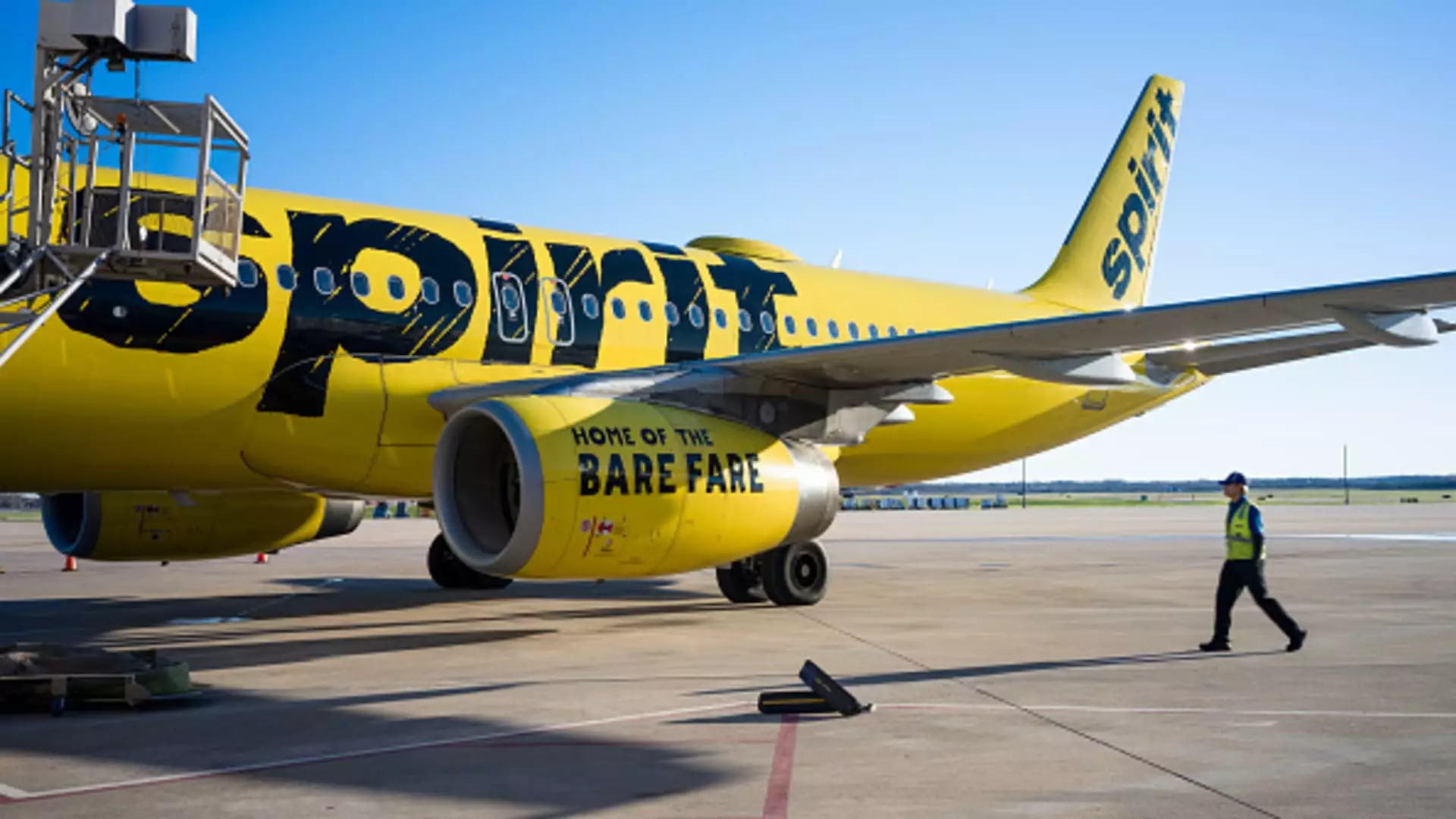On Friday, Spirit Airlines announced a crucial agreement with its credit card processor that would extend the timeline for a significant debt refinancing until December. This announcement comes just hours before the expiration of a previous deadline, underscoring the precarious financial situation of the Miramar, Florida-based airline. Earlier in the week, Spirit had drawn down the full amount of its revolving credit facility, totaling $300 million, indicating an urgent need for liquidity. The company projects that it will maintain slightly over $1 billion in liquidity as it approaches the end of the fiscal year, a scenario that raises questions about the sustainability of its operations in the coming months.
According to Spirit’s latest filings, the airline is actively engaged in negotiations with holders of its senior secured notes due in 2025 and its convertible senior notes maturing in 2026. These discussions are critical, as they directly relate to the company’s ability to navigate its debt obligations. The urgency of these negotiations cannot be overstated, particularly given that the debt refinancing deadline was previously extended from September to October 21, only to be pushed further into December at the last moment. This extension reflects a challenging financial landscape, particularly as investors scrutinize Spirit’s stock performance, which has seen a drastic decline, closing at under $1.50 per share, a decrease of approximately 3% on Friday alone.
Spirit Airlines’ situation has worsened over the past year, characterized by aggressive cost-cutting measures. The airline has resorted to furloughing workers, significantly reducing its flight schedule, and postponing aircraft deliveries—all aimed at conserving cash amid dwindling revenues. Compounding its challenges is a major recall impacting its Pratt & Whitney engines, which has grounded a number of its aircraft and further dented its operational capacity. This operational strain is particularly disheartening given the airline’s recent history and anticipated recovery in a post-pandemic travel environment.
Adding to its woes, Spirit’s planned acquisition by JetBlue Airways has collapsed, thanks to a recent ruling by a federal judge that raised antitrust concerns. This setback exemplifies not only the challenges Spirit faces in consolidating its market position but also reflects a broader skepticism among investors. With share prices plummeting by more than 90% in 2023 alone and nearly 40% just in October, confidence in the airline’s financial viability is at an all-time low. Reports from The Wall Street Journal suggest that bankruptcy is a looming possibility for the airline, indicating just how precarious its financial footing has become.
As Spirit Airlines navigates its turbulent financial landscape, it must grapple with significant debt obligations while also re-evaluating its operational strategies. The airline’s leadership has expressed a commitment to finding solutions through ongoing negotiations, yet vulnerabilities remain evident. The pressures of market conditions and operational challenges will necessitate strategic agility and financial prudence in the months ahead if the airline hopes to regain stability and investor confidence in the future.

